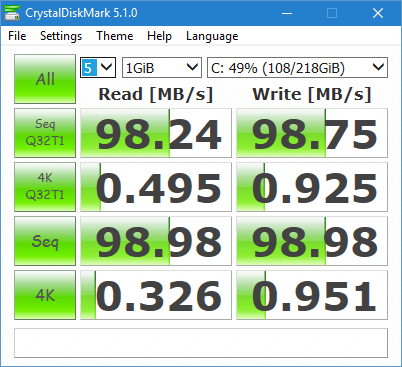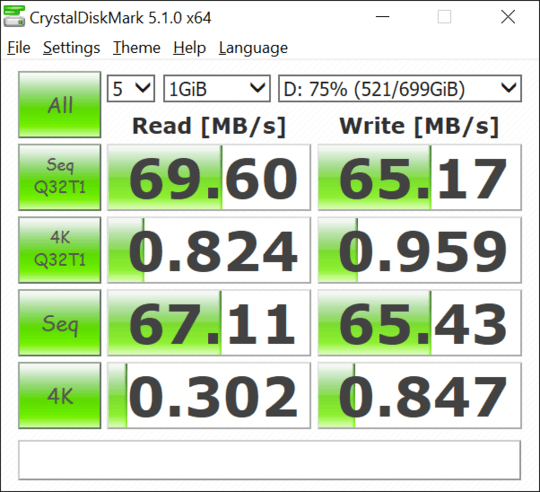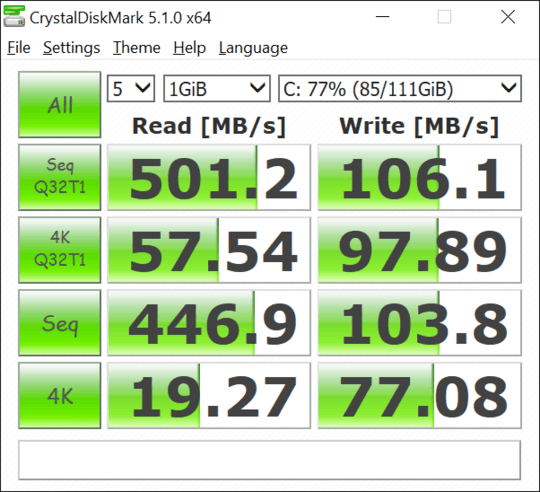-1
Since the upgrade from Win8.1 to Win10, the HDD of my laptop became unbearably slow. Please look at these transfer speeds:
0.3MB/sec????? Floppy drives had such a transfer rate. :)
The laptop is 6 months old, a Lenovo Yoga core i5. The HDD is Western Digital Blue UltraSlim 500GB (WD5000MPCK) type. All drivers are up to date (according to Device Manager). I have ESET Nod32 virus scanner installed.
I turned off Windows write-cache buffer flushing as recommended here, but that did not help. Do you have any advice?
UPDATE:
Symptoms: After upgrade to Win10, the laptop became unbearably slow using 100% HDD all the time. After restart, I have to leave the laptop unattended for approx 5-10 minutes, until the HDD catches up and have some breath.
Tried (and failed) treatments: I turned off indexing service to lower HDD load, I did de-fragmenting, none helped.
Measurable issues: The laptop is unable to play back HD videos taken by mobile phone (6 min = 1.2GB) because of HDD starvation. Pendrive transfer rate of huge video files is steady 6MB/sec (same pendrive on other laptop showed 23MB/s).



1If this problem follows multiple fresh installations of Windows then its a hardware problem not a software problem. Your speeds though as already pointed out are normal for a mechanical HDD. – Ramhound – 2016-01-02T13:37:54.083
@Ramhound: I have done a fresh installation of Windows, and the problem disappeared. Please turn your comment into an answer, and I will mark it as solution. – user24752 – 2016-01-03T01:13:20.593
Why? It wasn't the solution. I only post actual solutions to problems not possible solutions. – Ramhound – 2016-01-03T01:21:51.533